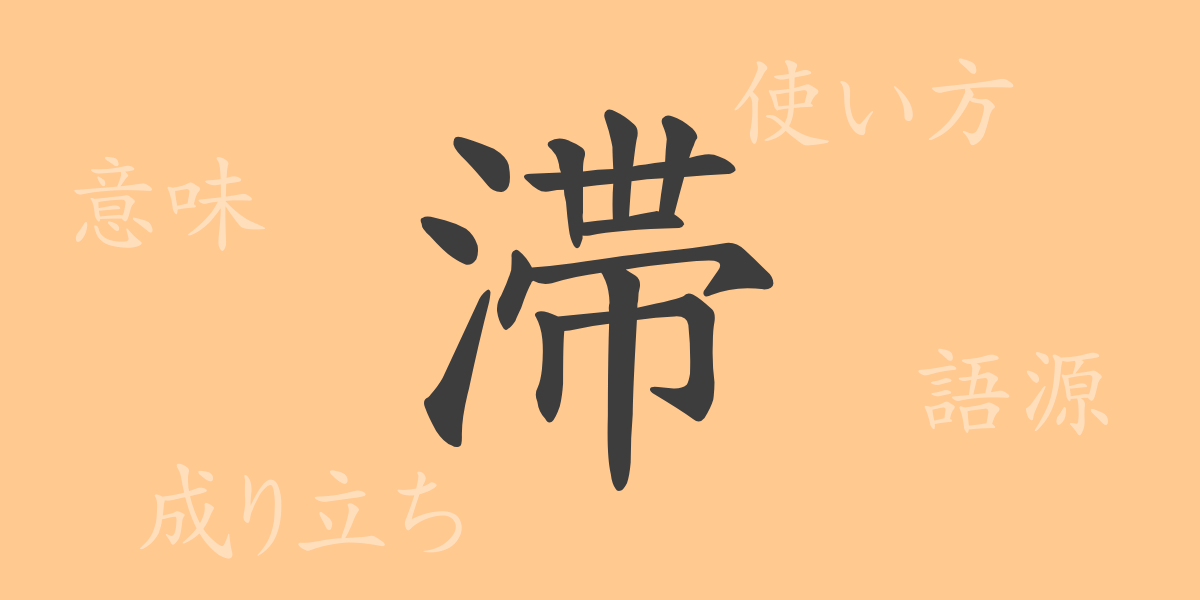The Japanese language contains numerous kanji, each with its unique history and meaning. In this article, we will delve into the kanji ‘滞’ (たい) (tai), exploring its origins, meanings, usages, pronunciations, and even the phrases and proverbs in which it appears. This exploration will reveal the depth and integration of ‘滞’ in both business and everyday conversation, offering insights into the expansive world of a single kanji character.
Origins of ‘滞’ (たい) (tai)
The kanji ‘滞’ originated in ancient China, depicted initially as water accumulating and ceasing to flow. Originally combining the elements ‘氵’ (さんずい) (sanzui) for water and ‘帯’, symbolizing restraint, it epitomized the stagnation of water flow. Over time, this meaning expanded metaphorically to refer to any form of stagnation or delay in progress.
Meaning and Usage of ‘滞’ (たい) (tai)
‘滞’ primarily means ‘to stop’ or ‘to be delayed’. It is used in various contexts like water ceasing to flow, business operations stalling, or payments being delayed, exemplified in terms such as ‘滞納’ (delayed payment) and ‘滞在’ (stay). In business, it frequently appears in terms related to delays or disruptions.
Pronunciation, Stroke Count, and Radical of ‘滞’ (たい) (tai)
Let’s examine the structural details of ‘滞’:
- Pronunciation: On’yomi is ‘タイ’ (tai), and Kun’yomi is ‘とどこおる’ (todokooru).
- Stroke Count: ‘滞’ consists of 13 strokes.
- Radical: The radical is ‘氵’ (さんずい) (sanzui), related to water.
Phrases, Idioms, and Proverbs Using ‘滞’ (たい) (tai) and Their Meanings
Several phrases and idioms incorporate ‘滞’, reflecting its meanings:
- 滞納 (たいのう) (tainou): Failure to meet payment deadlines.
- 滞在 (たいざい) (taizai): Temporary stay at a location.
- 滞る (とどこおる) (todokooru): To be delayed or impeded in progress.
- 滞水 (たいすい) (taisui): Water that remains stagnant without flowing.
These terms are effectively used to communicate various forms of delays or stagnation in both personal and professional contexts.
Summary on ‘滞’ (たい) (tai)
The kanji ‘滞’, originally depicting the cessation of water flow, now broadly signifies delays or stagnation in various aspects of life. Its use in business documents and everyday conversation shows its integral role in Japanese communication. By understanding the phrases and idioms shared in this exploration, you can enhance your expressive capabilities in Japanese, appreciating the profound narrative of ‘滞’.

























